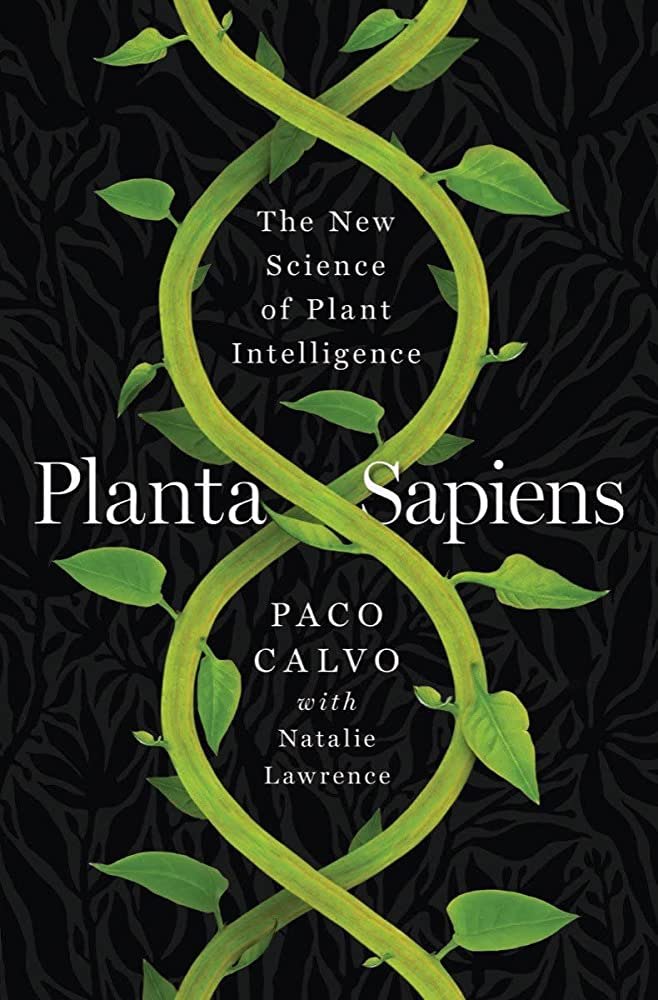Planta Sapiens by Paco Calvo
/Planta Sapiens: The New Science of Plant Intelligence
by Paco Calvo (with Natalie Lawrence)
WW Norton 2023
Paco Calvo, a professor of the philosophy of science, and Natalie Lawrence, a natural history writer with a PhD in the history of science, have collaborated to produce a book that’s either a wayward bit of crackpot theorizing or, far more likely, the first draft of a seismic ethical revolution. The title almost says it all: Planta Sapiens: The New Science of Plant Intelligence. In these pages, a great deal of recent research is summarized in order to pursue one quietly explosive question: are plants actually intelligent?
As our authors write, “We could even ask, why wouldn’t plants be intelligent, as animals are?” Didn’t plants and animals share the same primordial environments? While various animal species were adapting to those environments by developing different types and levels of intelligence, weren’t plants right there the whole time? “Animals and plants have evolved intelligence separately,” Calvo and Lawrence write, “helping them to function in very different ecological situations.”
The different ecological situations are obvious: animals are mobile, and plants mostly aren’t. Animals can interact with their environments in far more direct ways than plants, and they can also up-sticks and leave those environments, or try to. Plants, rooted to soil, have needed to evolve entirely different strategies, from the heavy armor of gigantic trees to the seasonal dormancy of seed to blossom. This means, Calvo and Lawrence argue, they all the more need to plan ahead. “They are not merely passive organisms taking life as it comes, while doing photosynthesis,” readers are told. “They proactively engage with their surroundings. Like animals in the bloodied tooth-and-claw wilds, plants couldn’t afford to do otherwise.”
The authors talk to researchers working on all the dimensions of plant intelligence, all the ways their physiologies have developed alternatives to animal neurology. And the upshot of all that research is stated plainly throughout the whole book: that plants have the ability to both learn and remember. “Individual plants can acquire new information about the environment,” our authors write, “retain this information, and use it to guide their future behavior.” They can exhibit compassion for other plants, display individual preferences, and show grogginess after being anesthetized (this last item seems oddly important to our authors; they bring it up insistently).
The import of all this has the potential to be stunningly subversive. The central contention of Planta Sapiens is that plants are people. They plan, they communicate, they innovate, and they very likely suffer and know their suffering.
All of which raises loud questions that Calvo and Lawrence see and echo but spend comparatively little time trying to answer. “We don’t seem quite ready to confront the welfare and rights of plants,” they write. “In fact, if we cared even a little for the unnecessary stress we inflict on plants, we would have set up ethical committees in research institutions by now, of the very same sort we customarily rely on for the purposes of animal experimentation.”
It’s difficult to imagine a world in which plants are considered with anything like the empathy this book suggests they deserve, and not only because this would mean confronting a truly alien system of perceiving the world; it would also raise the question of what even painstakingly ethical vegans are supposed to eat all day long – after all, man cannot live on jelly beans alone.
Calvo and Lawrence are much more concerned here with describing what science currently knows about plant intelligence, plant resourcefulness, and plant personality. So: who will write Plant Liberation?
Steve Donoghue is a founding editor of Open Letters Monthly. His book criticism has appeared in The Washington Post, The American Conservative, The Spectator, The Wall Street Journal, The National, and the Daily Star. He writes regularly for The Boston Globe, the Vineyard Gazette, and the Christian Science Monitor and is the Books editor of Georgia’s Big Canoe News.
